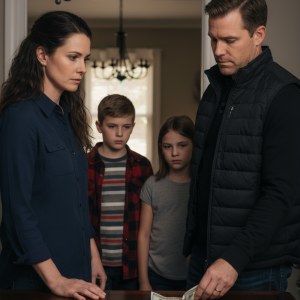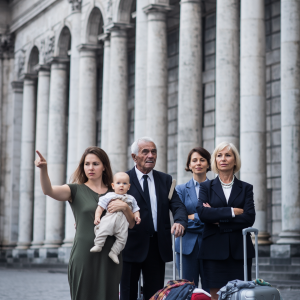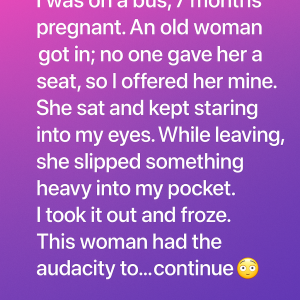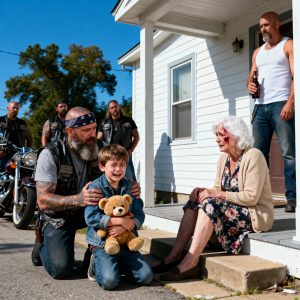I used to believe that one moment couldn’t change the entire course of your life.
Then I met her.
Jack and I had spent years aching for a family. Every doctor’s appointment, every failed test — another quiet heartbreak we didn’t speak about at dinner. Until one day, the ultrasound monitor lit up with the impossible.
Five tiny, flickering heartbeats.
The doctor cleared his throat. “Quintuplets.”
Jack’s laugh cracked into tears. “Guess we skipped lucky and went straight to impossible.”
It felt like we’d been handed the universe’s grand prize.
We prepared like we were going to war — a joyful one. Clipping coupons. Painting the nursery walls. Lining cribs side-by-side.
The day Ella, Noah, Grace, Liam, and Ava arrived, the world didn’t just get louder — it got brighter. Sure, we barely slept, and bottles seemed endless, but love like that makes exhaustion feel sacred.
And then came the phone call that shattered everything.
Jack was on his way home with diapers when a truck blew through a red light.
The hospital’s words were final: nothing they could do.
I had five babies under two and half my heart buried in the ground. Nights in the rocking chair felt like entire lifetimes. But mornings always came — and so did the bottles — and somehow, I kept moving.
I picked up a work-from-home writing job that barely covered the basics. Every week was a tightrope walk between bills, groceries, and the electric bill.
That Tuesday, I went in with my list: bread, milk, rice, apples. I’d tallied the cost three times. My account balance: $62.78.
At checkout, the cashier rang up the last item.
“That’s $72.89,” she said.
I blinked. “That… can’t be right.”
She rescanned. Same total.
“You’re short ten dollars,” she said, loud enough for the man behind me to sigh.
Heat crawled up my neck. I started removing items — first the bread, then the cheese.
The cashier rolled her eyes. “Lady, if you can’t pay, step aside. People are waiting.”
Whispers. A stroller squeaking. My hands shook.
Then, a calm, steady voice broke the tension.
“Leave everything. She’s not going anywhere until her groceries are paid for.”
I turned. A woman in a navy coat, eyes warm but unflinching, already handing over her card.
“I can’t let you—”
“You can,” she said softly. “And you will. I’ve been exactly where you are.”
Her name was Claire. She walked me to the door, telling me she’d lost her husband when her son was a baby. “I remember standing in this exact store, counting coins and swallowing tears. Someone helped me. Today, it’s my turn.”
At home, after tucking the babies in, I opened the envelope she’d slipped into my hand.
Inside: a handwritten note — You will survive this. Your children will grow up knowing how hard you fought. They will be proud. You are not alone.
Tucked behind it was a $200 grocery card.
I sat at the table and sobbed. But this time, it wasn’t grief — it was the kind of relief that breathes life back into your chest.
I never saw Claire again. But she’s with me every time I’m behind someone in line who looks like they’re losing the fight.
Because that day, she didn’t just pay for groceries. She gave me back something I thought I’d lost forever — hope.
And hope, I’ve learned, is the one thing you should never run out of.





